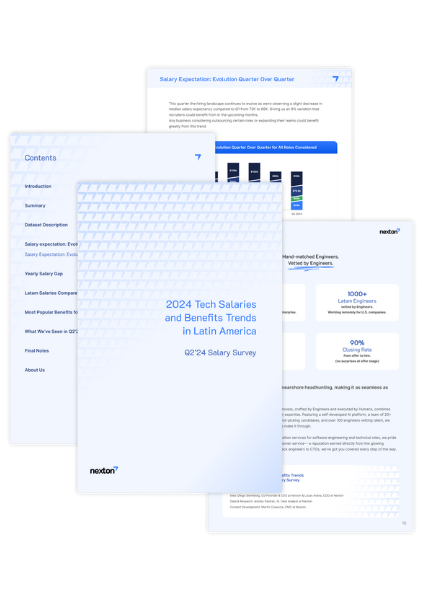Fun fact: The Django framework was named after the famous jazz guitarist Django Reinhardt – and for good reason. Django is a world-class, highly versatile framework that allows developers a great level of “improvisation” when it comes to customizing code.
What’s more, this web framework is a huge resource-saver, as its built-in libraries and templates give developers a leg up to create apps with a record time-to-market.
But while Django is just about as perfect as web frameworks get, there are some downsides to be aware of. Today we’ll take an in-depth look into the Django framework, including pros, cons, best uses and more, so you can decide if it’s right for your development needs.
About the Django framework

(Source: Statista)
Django is an open-source, Python-based tool that’s consistently ranked within the top 10 most popular web frameworks.
While it was originally developed in 2003 by Adrian Holovaty and Simon Willison, it’s evolved significantly over the years, becoming the most robust Python-based framework available today.
In addition to its excellent reliability, customization and built-in libraries, the Django framework is a top choice for developers due to its massive, friendly community.
Pros of the Django framework
Here’s how the Django framework can give you an edge as you code your next web development app.
- Leverage Python’s accessibility: Python is currently the most popular programming language in the world, ranking with a 28.34% share in the PYPL PopularitY Index. As a highly accessible language, Python streamlines development due to its simple syntax and easy-to-build properties, making the Django framework an extension of these user-friendly qualities.
- Save developer resources: Django saves developers loads of time. With robust templates, libraries and community guides, IT teams can speed up development. In addition, Django has a great admin panel that allows for progressive, scalable and deadline-driven development, which helps companies plan their development budgets.
- Get highly customizable features: The downside of many web frameworks is that developers are locked into the available templates. However, the Django framework is truly customizable and tweaks can be made from the admin interface or even directly in the code in order to achieve a “made-from-scratch” look and feel.
- Reuse components for top time-to-market: It’s amazing how many out-of-the-box components that Django makes available to developers. This web framework has a “Don’t Repeat Yourself” (DRY) philosophy, which means components can be easily reused, saving teams time as they don’t have to worry about duplicate work.
- Lock down security: Django is also a first-rate choice for airtight security. It includes top security features to protect against cross-site scripting, SQL injection, clickjacking, and many other security features.
- Join an active community: The Django framework community forums and guides are some of the most pro-developer out there. Besides thousands of libraries, templates and packages, this community has a friendly reputation and is a great fit for new developers.

Cons of the Django framework
Of course, this web framework isn’t right for every project. There are a few reasons why the Django framework may not be a good fit for you:
- Less-than-ideal performance for small apps: Django was designed for large, complex apps. Given its powerful capabilities, this web framework may slow down smaller apps. In these cases, a more lightweight framework such as Flask may be the better pick.
- Resource intensive: Django will take up a lot of developer disk space and memory. In addition, it requires a lot of coding, which may impact bandwidth and processing time.
- No multiple-requests: Django doesn’t have the ability to handle multiple requests like other frameworks out there. In order to process multiple requests, developers will have to hack the code in order to make this possible.
- Tightly coupled code: The Django framework may not be right for you if loosely-coupled components are a big priority for you. Coding on Django is tightly coupled, so classes will be highly dependent.
Best uses of the Django framework
Luckily, the Django framework is considered one of the most versatile tools on the market. It can be used to build almost any type of web app and pair with almost any type of format. While it’s not ideal for smaller apps, everything else is fair game, especially:
- Apps with heavy traffic, a large user base and/or high content volume
- Large, complex and often-updated apps
- Apps that require advanced customization
- Highly secure apps (such as for reliable payments or banking)
- Apps with multiple user roles
- Cross-platform apps

Leverage the Django framework for your next web app
Is Django the perfect web framework? Just about! Now that you fully understand the Django framework, you can make the right choice for your next web development project. Django is a robust, top-tier Python-based option that can empower your developers to do more in less time.
If you’re looking for elite Python developers to maximize Django, get in touch with our talent specialists at Nexton. We have a massive network of amazing developers from Latin America who can take your Django development to the next level. Reach out today!
Check also:
- The Complete Guide to Hire Technical Talent in LATAM
- How Non-Monetary Rewards Pay Off for Your Tech Talent
- How to Craft Effective Onboarding Plans (with 30-, 60- and 90-day Milestones)
- From Good to Great: Rethinking Your Talent Sourcing Strategy
- Key Things to Keep in Mind to Hire Remote Engineers from Latin America
- How to Vet Tech Candidates to Optimize Recruitment
- I Hired the Wrong Candidate – Now What?
- Remote Work Culture as a Software Development Product
- How Remote Hiring in LATAM Can Help You Stay Afloat in This Downturn


